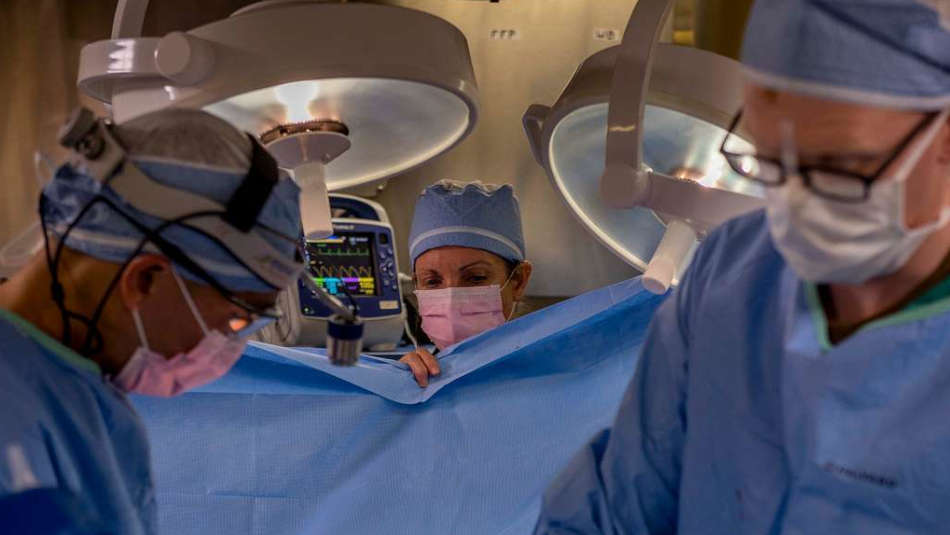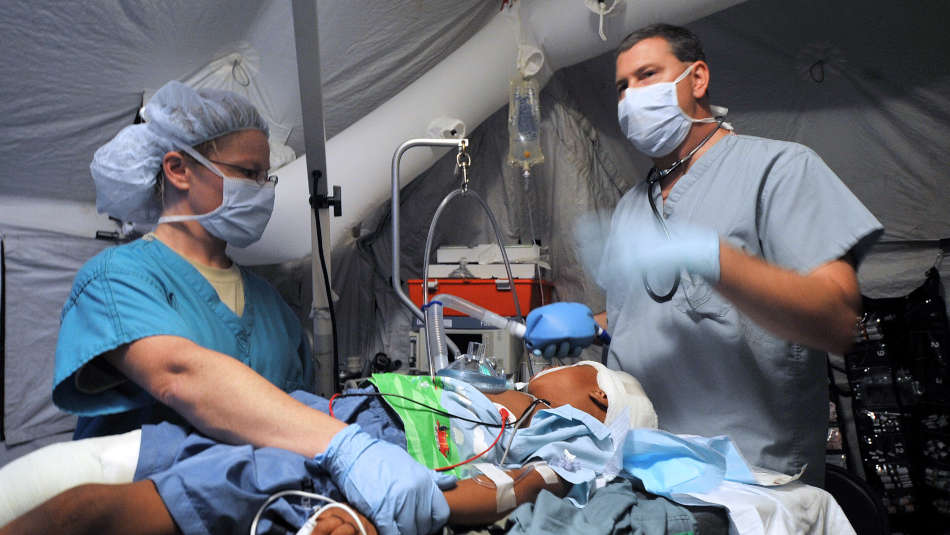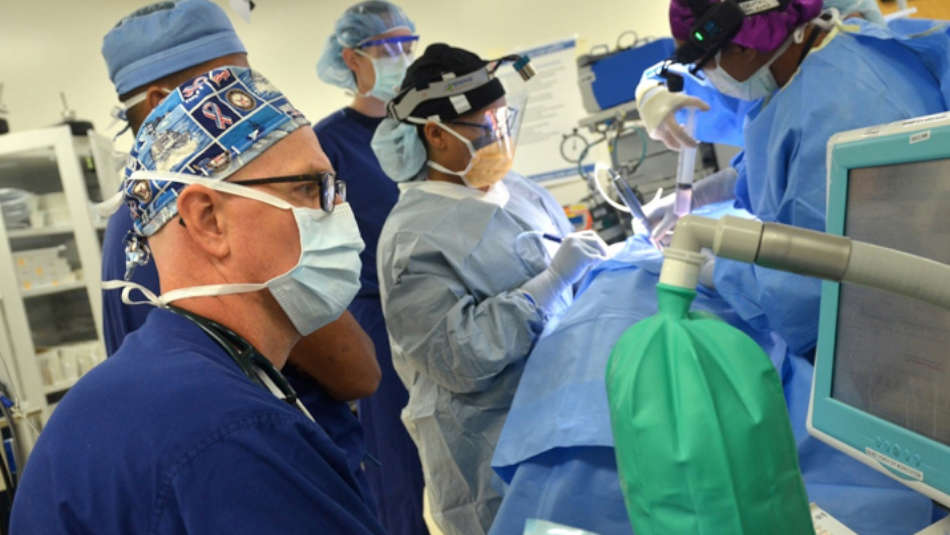There are many surgeries that require the patients to be put under general anesthesia. This requires to services of qualified, licensed, certified, and experienced nurse anesthetists.
They are practice nurses with experience who administer for patients in a number of countries.
Their autonomy and independence to undertake this vital job depend on the levels to which they belong.
In this article, we will try and answer some common questions. These questions include where do nurse anesthetists work and also whether can nurse anesthetists work abroad or not.
We are sure it will be useful to aspiring candidates and other information seekers who wish to know more about nurse anesthetists.
Nurse anesthetists are allowed to practice in almost each and every place where there is a need for delivering anesthesia.
The list is quite big and it could cover the following:
- ambulatory surgical centers
- hospitals where critical care patients are treated
- obstetrical delivery rooms
- conventional and regard hospital surgical wards and suites.
Further, their role is also important in the following departments:
- dentist clinics
- ophthalmologists
- podiatrists
- pain management specialists
- plastic surgeons
- and even in the military.
Many care facilities take care of Veterans Affairs and Public Health Services.
Therefore there is no denying the fact that they have a wide canvas of hospitals, nursing homes, clinics, and other such places, where their role is critical and you can find them practicing in such places regularly.
Here is a day in the life of -video if you want to know how the typical night-shift goes as a CRNA.
Now you know the basics about where do nurse anesthetists work. Next, let’s find out the academic requirements to acquire this position.
Table of Contents
Academic requirements
While they have many places to work and practice, they need to ensure that they become a registered nurse also known as RN.
See also: How to Become a Registered Nurse
Additionally, they are also required to have a Degree in Bachelor of Science. Further, they also must have had one year’s practical experience in an acute care setting.
Once the above qualifications combined with practical experience have been completed, these professionals have to apply to the competent authorities.
They need to be accepted by a reputed nurse anesthesia program that is also accredited.
There are many information resources on the internet and also in print form.
You should go through the same so that you have a reasonably good idea about the educational, training, experience and other such requirements.
The graduate programs run for a period of two to three years and it focuses on various areas covering physiology, biochemistry, pathophysiology, physics, chemistry, and also pharmacology.
The programs also have intensive clinical training in large community hospitals or hospitals that are university-based.
To become a qualified nurse anesthetist, average students have to spend almost 2,500 clinical hours and also should have administered around 850 anesthetics.
Once they graduate, the candidates also will have to take a national certification exam.
The exam must be cleared successfully only after which practice is allowed.
Any certified nurse anesthetist can continue their education when they are able to garner a minimum of 40 hours of continuing education from an approved university or center.
This should be for every two years so that your license remains intact.
We also need to keep in mind that nurse anesthetists have to carry with them a big load of responsibility and accountability.
See also: Responsibility of a Nurse
Therefore, it is quite obvious that they are also compensated accordingly.
According to the figures emanating from the BLS or Bureau of Labor Statistics, the average salary of these medical professionals is roughly around $160,000.
Where can a nurse anesthetist work?

Registered nurses or RN’s have a wide platform of choices.
Hence, answering the question of where can a nurse anesthetist work should not be much of a tough job.
In fact, if one looks at it carefully, RNs have the potential of choosing from almost 100 specializations where they could work. However, many of these specializations come with their unique daily duties.
The role of a house nurse anesthetist will be completely different from a hospice anesthetist nurse.
See also: How to Become a Hospice Nurse
If a person is keen on expanding the places and areas where he or she can work, then it is imperative that they should complete the right course and become a CRNA or Certified Registered Nurse Anesthetist.
This will help them to kick start their healthcare career aspirations in the right direction and on the right note. It is considered to be one of the most accepted and advanced professions.
The monetary benefits that come along with it are also quite impressive.
It also allows these professional nurse anesthetists to enjoy a great deal of professional autonomy. The excitements, challenges, and opportunities are also impressive.
The job experiences will be different and therefore there could be quite a bit of learning and unlearning also to do.
They are in demand over almost 100 areas because their responsibilities are also quite big. Their job duties are also quite long.
Yes, they are responsible for administering the right anesthesia depending on the surgery or type of treatments that the patients are going through.
Further, they are also responsible for monitoring the vital of the patients through the procedure, treatment, or surgery.
See also: Can Nurse Practitioners Do Surgery or Not?
They have to monitor the patient and ensure that they are completely normal and have totally recovered from the impacts of anesthesia.
But where do nurse anesthetists work mostly?
They work mostly in pain clinics, hospitals, plastic surgery clinics, surgical centers, dental clinics, and podiatry clinics.
Can nurse anesthetist work abroad?

The role of nurses in general and nurse anesthetists, in particular, is becoming quite important and vital. There is a growing demand for these professionals.
Yes, if you are a qualified CRNA, you can aspire to work abroad.
However, there are special rules and regulations that may be applicable to each and every nation.
The same should be kept in mind.
For example, the rules of employing a nurse anesthetist in Australia may be different from the rules applicable in a few countries of the European Union.
It would be better to visit sites like IFNA or the International Federation of Nurse Anesthetists.
This will give a better idea about the requirements for nurse anesthetists planning to work abroad.
Conclusion: Where do nurse anesthetists work?
We are sure that the above would have given the readers and also aspiring candidates the right information and knowledge about nurse anesthetists.
There is a growing demand for these highly qualified, skilled, and critical resources and therefore they are also paid extremely well.
At the same time, their responsibilities and duties are also quite demanding and challenging.
Reports suggest that the demand for these professionals will see a big jump not only in this country but also across the world because of obvious reasons.
Now you know pretty much all about where do nurse anesthetists work.
Here are a couple of related articles of ours to the topic “Where do nurse anesthetists work?”:
- CRNA Interview Questions
- Do Nurse Anesthetists Wear White Coats?
- Where Do Registered Nurses Work?
- Where Do Psychiatric Nurse Practitioners Work?
- Where Do Nurse Practitioners Work?
I’d really appreciate it if you could give this article a star rating. Thank you in advance!
